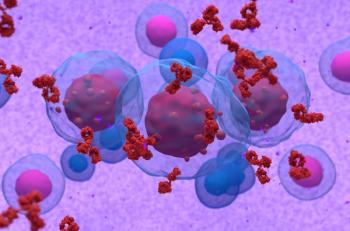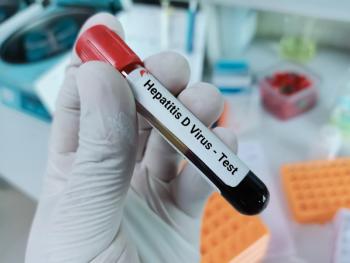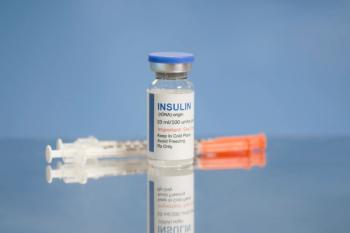
The action is supported by positive safety and efficacy findings from the phase 1a/1b first-in-human Beamion LUNG-1 trial.

The action is supported by positive safety and efficacy findings from the phase 1a/1b first-in-human Beamion LUNG-1 trial.

Birelentinib gains FDA fast track designation, offering hope for relapsed CLL/SLL patients resistant to current BTK and BCL2 therapies.

CARTITUDE-1 data show one-third of patients treated with cilta-cel remain progression free at 5 years without maintenance.

PHESGO reduced patient infusion time from 90 minutes to as few as 5, enhancing patient experience while maintaining efficacy and safety.

Discontinuing lenalidomide after 3 years of MRD negativity shows low relapse rates in multiple myeloma, offering hope for treatment-free remission.

WHO reclassifies hepatitis D as carcinogenic, urging global action to combat viral hepatitis and reduce liver cancer risk.

Maximizing pharmacists’ impact on medication safety requires removing barriers to intervention and empowering proactive clinical roles.


Sanofi's SAR446523 receives orphan drug designation for relapsed/refractory multiple myeloma, enhancing treatment options and patient outcomes.

Pirtobrutinib shows promising results in a head-to-head trial against ibrutinib for chronic lymphocytic leukemia (CLL)/small lymphocytic leukemia (SLL).

Decentralized pharmacists play a critical role in reducing medication errors by collaborating in real time with physicians and nurses to enhance patient safety across care settings.


Kevin Chen, PharmD, MS, BCOP, CPP; and Amanda Cass, PharmD, BCPS, BCOP, share key insights about ROS1, non-small cell lung cancer, and the newly approved drug taletrectinib.

Pharmacists share their institution's individual, unique approaches to medication safety.

Emerging trial results reveal gedatolisib significantly enhances progression-free survival (PFS) in advanced HR+/HER2- breast cancer.

Pharmacist share actionable insights for EMR utilization and facilitation of medication safety practices.

Targeting BRD4 with BET inhibitors shows promise in reversing immune suppression by myeloid-derived suppressor cells in chronic lymphocytic leukemia.

Avatrombopag gains FDA approval for pediatric ITP treatment, offering a new oral option for managing chronic thrombocytopenia in children.

Trastuzumab deruxtecan shows promising efficacy in treating HER2-positive metastatic breast cancer with brain metastases, offering hope for challenging cases.

CDC's ACIP recommends removing thimerosal from flu vaccines, igniting debate on vaccine safety and fueling antivaccine sentiments amid public health concerns.

A Danish study confirms no link between aluminum in childhood vaccines and chronic diseases, reinforcing vaccine safety amid rising skepticism.

Eugene Przespolewski, PharmD, BCOP, DPLA, shares insights from his presentation at the 2025 OPC meeting in Austin, Texas.

The advisory committee cited concerns around ocular toxicity and overall tolerability, raising serious questions about the drug's benefit-risk profile ahead of its scheduled Prescription Drug User Fee Act action date on July 23, 2025.

Pharmacists play a vital role in translating global health news into actionable knowledge for their communities.

Research reveals HER2-negative breast cancer shows higher pCR rates than HER2-low, influencing neoadjuvant chemotherapy strategies for early-stage patients.

Research reveals that higher BMI in women with cardiovascular disease significantly increases breast cancer risk, highlighting the need for targeted prevention strategies.

An adjusted analysis of the ALPINE and ASCEND trials revealed a statistically significant progression-free survival advantage for zanubrutinib.

The agent, Kirsty, represents a more affordable alternative to Novolog.

The data showed patients with relapsed or refractory multiple myeloma achieved a 73% overall response rate.

Combination therapy with trastuzumab emtansine and trastuzumab significantly enhances survival rates in HER2-positive early breast cancer, outperforming trastuzumab alone.